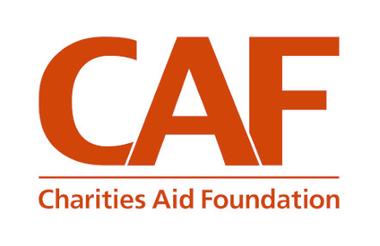The Charities Aid Foundation (CAF) has marked its centenary year with a record distribution of over £1.1bn to charities on behalf of individuals and businesses in its last financial year.
CAF, one of the largest charities in the UK by income, distributed £1.13bn to “hundreds of thousands of charities in every part of the UK and around the world” in 2023-24, an increase of £108m compared to the previous year.
Private and corporate clients in the UK, US and Canada entrusted more than £1.16bn to CAF last year.
For the year ending 30 April 2024, CAF Bank, owned by the charity, increased its loans by £36.2m to help charities and social housing organisations to improve their sustainability and grow, according to the charity’s trustees report for 2023-24.
Neil Heslop, chief executive of the Charities Aid Foundation, said in a statement: “In our centenary year, we have again distributed a record sum to charities and non-profits the world over.
“To say this is much needed is an understatement as charities continue to face severe challenges.
“They are the glue that holds our society together and it is a tribute to the trust people place in them that they turn to them during times of need.”
Heslop said CAF, which was established in 1924 and has been operating as an independent charity since 1974, aimed to grow giving further in the years ahead.
Bank’s paper investment loss reduces
CAF Bank, which serves more than 14,000 charities, previously reported an unrealised loss, which refers to a loss in the value of a current asset not yet sold, of £33.4m in bond holdings as interest rates rose in its annual report for 2022-23.
The bank’s board of directors considered that it would not need to sell the bond holdings, and the portfolio “would be held to maturity in all but the most extreme scenarios”, which it reiterated in this year’s annual report.
The bank saw its unrealised loss on bond holdings reducing to £23.4m, according to its 2023-24 annual report.
A CAF Bank spokesperson told Civil Society: “The theoretical mark-to-market position is not a problem for us.
“We hold all our long-term investments until they mature and then re-invest them, rather than regularly trading our investments in the market.”
The mark-to-market (MTM) method provides a real-time evaluation of a company’s financial situation based on current market conditions.
“Expected downward pressure on interest rates will reduce the MTM loss further over time, but even if interest rates remained constant, the MTM would continue to fall as the bond portfolio matures over time,” a CAF Bank spokesperson said. The MTM loss was at £16.7m as of 26 July 2024, the report states.
The bank’s capital also increased from £51.5m in 2022-23 to £65.1m in 2023-24.
No donation to parent charity
Despite the financial gains, the bank did not donate to its parent charity CAF this year due to the bank’s ongoing investment.
Janet Pope, CAF Bank chair, said: “At CAF Bank, our aim is to be the banking partner of choice for more UK charities. This has meant investment in our own ability to scale and take on additional customers in significant numbers.
“Set to be launched later in the year, our new IT platform will transform CAF Bank. It will enable us to give our current and future customers a more efficient, modern experience and make sure we can offer the digital banking services that many of our customers need.
“Our aim is that customers who want to do everything online can, but those who want to pick up the phone will still be able to do so.”
Editor's note: This article's headline and subhead have been updated to clarify that CAF Bank, rather than the parent charity, recorded paper investment losses.
Related Articles










